This page is a stub. It will be expanded to a full-fledged article.
Patara
Q629897Patara (Greek: Πάταρα) or Arsinoe (Greek: Ἀρσινόη): town in ancient Lycia, port of Xanthus, modern Gelemiş.
Early History
-
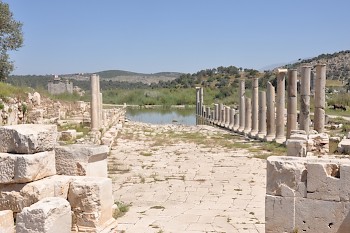
Patara, Colonnaded Street - Town already inhabited in the Bronze Age: Patar in Hittite texts. Pttara in Lycian.
- Considered to be the birthplace of Apollo and Artemis; the sanctuary of Leto (the Letoon) was on the opposite bank of the river
- Oracle of Apollonote
- Meeting place of the Lycian League; subject to the Persians, to Maussolus,
Hellenistic Age
- 333 BCE: Surrenders to Alexander the Great
- Diadochs: Antigonus I Monophthalmus uses it as naval base; his son Demetrius I Poliorcetes uses it during the siege of Rhodes (304 BCE); later, it is Ptolemaic:
- Ptolemy II Philadelphus acquired the town and renamed it Arsinoe, after his queen Arsinoe II
- Fifth Syrian War: Patara becomes Seleucid in 197 BCE
- 188 BCE: After the Syrian War, place where the Romans destroyed the Seleucid fleet; city handed over to the Rhodians,
- 167 BCE: Lycian League regains its independence
- 88 BCE: Mithridates VI of Pontus cannot capture the city during the Third Mithridatic War
- 42 BCE: During the Roman civil wars, Brutus captures Patara and Xanthus
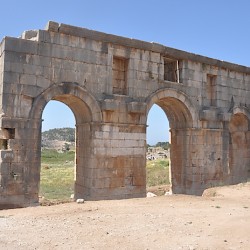 Patara, Arch of Mettius Modestus |
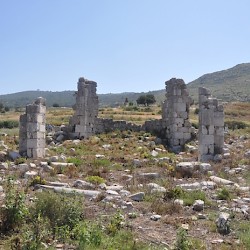 Patara, Basilica |
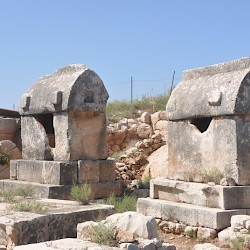 Patara, Lycian tombs |
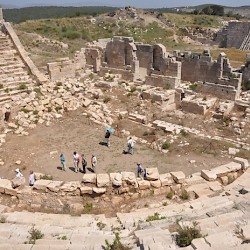 Patara, Theater |
Roman Empire
- 43 CE: Annexation by the emperor Claudius; capital of the province of Lycia and Pamphylia
- The apostle Paul changed ships in Patara when he was on his way to Jerusalem
- Birthplace of Nicholas, bishop of nearby Myra
- Christian basilica; this was an important way-point for pilgrims to the Holy Land
- The harbor silted up in the Byzantine age
- The ruins, standing in an arc, indicate where the port once must have been
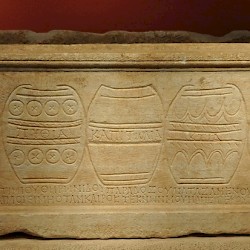 Patara, Sarcophagus of the champion Theronides |
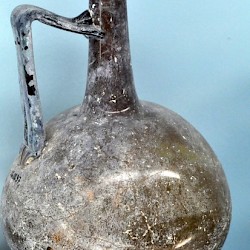 Patara, bottle |
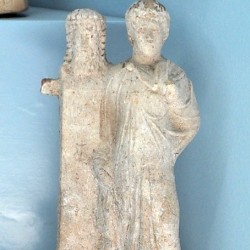 Patara, Figurine of a man and a herm |
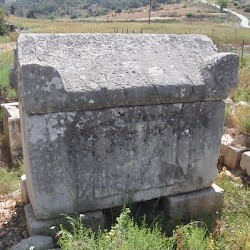 Patara, Roman sarcophagus |